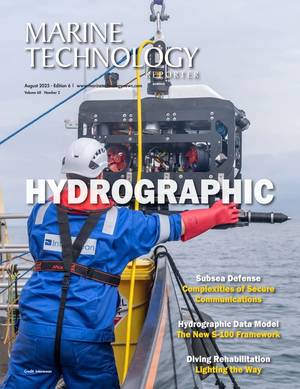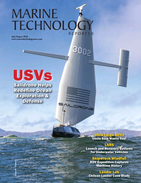
National Marine Sanctuary Foundation Welcomes Admiral Tim Gallaudet As New Trustee
as the Navy’s chief oceanographer, meteorologist, hydrographer, navigator, and senior liaison officer to the NOAA Administrator. He also has served on numerous Boards and Advisory Panels, including Force Blue, the Advisory Council for Project Recover, the Director’s Council for Scripps Institution of Oceanography, and the White House Ocean Research Advisory Panel, among others. Ahead of the United State's 250th anniversary and the National Marine Sanctuary Foundation’s 25th anniversary, Adm. Gallaudet’s contribution to the Foundation through his leadership and influence
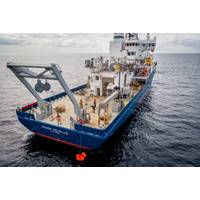
Research Vessels: A Conversation with Bruce Applegate of UNOLS
Oceanographic Laboratory System (UNOLS) is the central organization that provides scientists with access to advanced research ships and technology to explore the world's oceans. We recently spoke with Bruce Applegate, Chair of the UNOLS Council and Associate Director at Scripps Institution of Oceanography, to explore UNOLS’ operations and future plans.Understanding UNOLS and the U.S. Academic Research FleetContrary to common misconception, UNOLS does not own or operate a fleet. Instead, it facilitates coordination among the U.S. Academic Research Fleet (ARF). ARF includes 17 ships
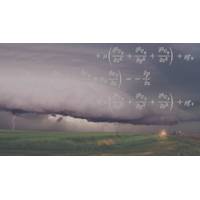
Padilla, Murkowski Introduce Bill for Atmospheric River Forecasting
forecasts of atmospheric rivers to enable more flexible and resilient water management, improved warning around flooding, and overall improvements to public safety," noted Marty Ralph, Founding Director of the Center for Western Weather and Water Extremes at UC San Diego’s Scripps Institution of Oceanography
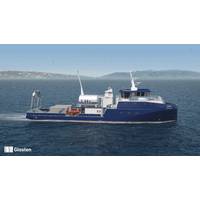
Shipbuilding RFP Issued to Build Hydrogen-Hybrid Research Vessel
UC San Diego’s Scripps Institution of Oceanography issued a request for proposals (RFP) to select a shipyard for the final design and construction of its new 163-ft. Coastal Class Research Vessel (CCRV), reportedly the first oceanographic research ship to primarily operate on renewable fuels.The vessel will feature a dual-powered hydrogen fuel cell and diesel-electric propulsion system, capable of conducting 75% of its missions using only liquid hydrogen. When running on hydrogen, CCRV will produce zero emissions and operate with minimal noise, ensuring contamination-free sampling and enhanced
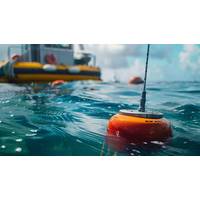
'Blue Economy' Target of Government Funding
sectors together to create sustainable business models, for technologies, products, and services that tackle climate resilience needs in oceans, coastal regions, and the Great Lakes.”Recommended awardees and funding amounts include:StartBlue Ocean Enterprise Accelerator. UC San Diego-Scripps Institution of Oceanography and Rady School of Management: $13.5 million.gener8tor Great Lakes Innovation Accelerator. gener8tor Management, LLC: $13.4 million.VentureWell Ocean Enterprise Accelerator. National Collegiate Inventors & Innovators Alliance, Inc. (dba VentureWell): $13.5 million.The Continuum
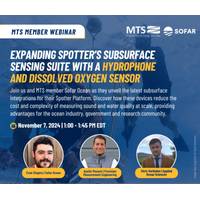
MTS Member Webinar: Expanding Spotter’s Subsurface Sensing Suite with a Hydrophone and Dissolved Oxygen Sensor
as task force leader for on-scene Coast Guard assets during the Deepwater Horizon oil spill, and as project officer for oil spill response exercises in support of Operation Arctic Shield, earning five arctic service medals in the process.Dr. Verlinden earned an M.S. in Oceanography from Scripps Institution of Oceanography in 2014 with research focused on passive ocean acoustics and the information content of ocean noise, and completed his Ph.D. in Applied Ocean Sciences at Scripps in 2017, with research focusing on passive acoustic source localization and environmental inversion. In 2014, Dr. Verlinden
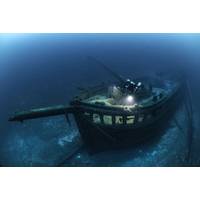
NOAA Awards $2.1 Million for Ocean Exploration Projects
technology to survey fish communities on the island of Pohnpei, Federated States of Micronesia. Image courtesy of Richard PyleExploration and Characterization of Deep-Pelagic Crustacean Diversity in the Southern California Exclusive Economic Zone - (Principal Investigator: C. Anela Choy, Scripps Institution of Oceanography)The deep ocean is the largest living space on Earth, and the deep-pelagic (or water column) species that live there are important food sources for marine predators, including ecologically, culturally, commercially, and recreationally important species. Scientists have much to learn
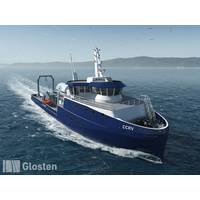
Hydrogen-Hybrid Research Vessel Earns AIP
Glosten was awarded an Approval in Principle (AIP) by the American Bureau of Shipping (ABS) for the design of UC San Diego’s new hydrogen-hybrid Coastal-Class Research Vessel (CCRV). The CCRV will be operated by Scripps Institution of Oceanography and feature a propulsion system that uses hydrogen fuel cells for zero-emissions operation.Glosten and the project’s electrical integrator, Siemens Energy (SE), completed the preliminary design for the CCRV in March 2024. As an uninspected, California Air Resource Board (CARB)-compliant, ABS-classed vessel and an alternative design under
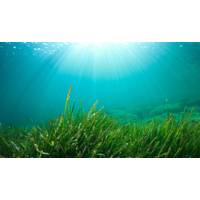
Funding Awarded for Five Projects that Study Ocean Systems in a Changing Climate
five projects and teams will form the inaugural membership of OBVI, which has committed $45 million to fund their research over the next five years:Integration of models and observations across scales (InMOS). Led by: Tim DeVries (University of California, Santa Barbara) and Ralph Keeling (Scripps Institution of Oceanography)The global ocean helps mitigate climate change by absorbing heat and carbon, but is also experiencing a triple threat from warming, deoxygenation, and acidification that may cause harm to marine ecosystems. InMOS will use AI and machine learning to build a framework for integrating
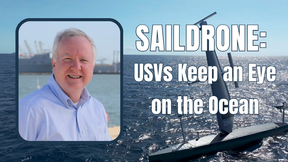
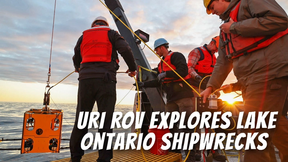
 August 2025
August 2025
